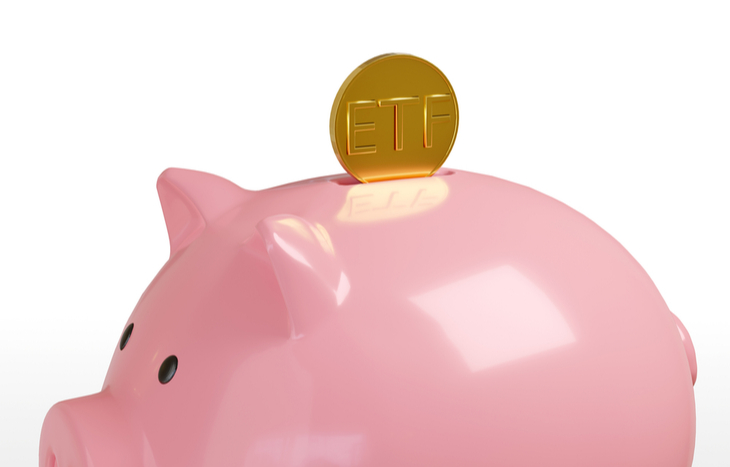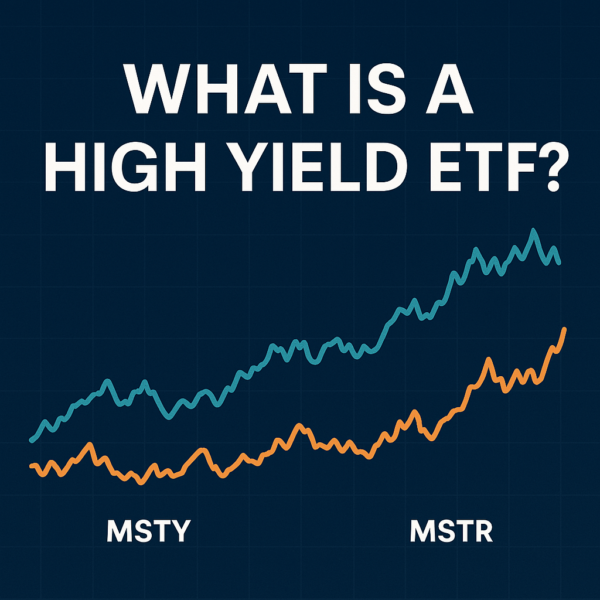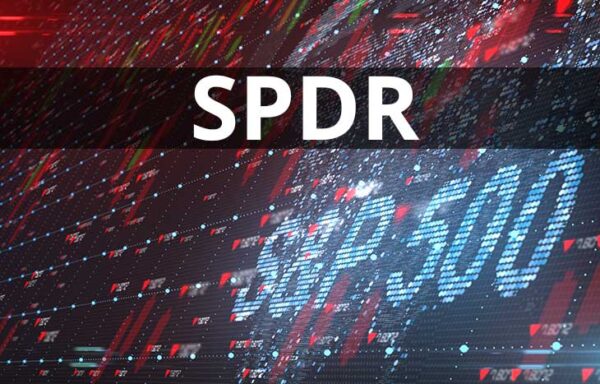3 Penny Stock ETFs to Watch in 2022
Penny stock ETFs can be a great way to diversify your portfolio. Penny stocks are loved and hated by investors across the board. Nevertheless, there’s no denying their potential in the market.

Keep in mind, many of the biggest companies today were once penny stocks. At one point, Amazon (Nasdaq: AMZN) and Apple (Nasdaq: AAPL) were penny stocks. Imagine if you had invested when they were!
Some of the market’s future leaders are hiding among penny stocks. Furthermore, it’s often easier for a small company to grow than larger companies. The microcap sector has historically outperformed the overall market.
You can potentially score big if you get in early and hold long-term. However, you should know about the high risks involved with these funds. First, let’s dive into the basics of penny stock ETFs…
What Are Penny Stock ETFs?
An exchange-traded fund (ETF) is a collection of securities that trade on an exchange. It can be a pool of stocks, commodities or bonds. These funds can give investors exposure to various markets and help minimize risk. They can also broaden your portfolio without having to spend a lot of time and effort on individual investments.
You can invest in several penny stocks at once by investing in a microcap ETF. The stocks in the funds below are common shares of companies that trade at low prices (usually under $5). These funds are an alternative to investing directly in penny stocks. It’s less work. Furthermore, it’s far less risky than investing in one company.
3 Penny Stock ETFs to Consider
- iShares Micro-Cap ETF (NYSE: IWC)
- First Trust Dow Jones Select MicroCap ETF (NYSE: FDM)
- AdvisorShares Dorsey Wright Micro-Cap ETF (NYSE: DWMC)
Let’s take a look at these penny stock ETFs in more detail…
iShares Micro-Cap ETF
Expense Ratio: 0.60%
The iShares Microcap fund is the largest ETF in its class. This fund is made up mostly of individual penny stocks. It tracks the performance of the Russell Microcap Index. As of November 30, this fund has nearly 1,800 holdings.
The fund is notable because it has holdings in diverse sectors of the market. Its main holdings are in the healthcare, financials and industrials sectors. Each of those sector weightings comes in at 23%, 22% and 12%, respectively.
First Trust Dow Jones Select MicroCap ETF
Expense Ratio: 0.60%
The First Trust Dow Jones Select Microcap Index Fund is the second-largest microcap index ETF. This fund tracks the performance of the Dow Jones Select MicroCap Index.
Stocks in this index are screened based on market capitalization, trading volume and other financial indicators. The fund is mainly composed of the financial, industrial and consumer discretionary sectors. Those sector weightings come in at 35%, 15% and 12%.
There are over 200 holdings in the fund. The fund’s largest holding is AdvanSix (NYSE: ASIX). As of March 2022, the fund has over $168 million in total net assets.
AdvisorShares Dorsey Wright Micro-Cap ETF
Expense Ratio: 1.27%
The AdvisorShares Dorsey Wright Micro-Cap Fund is an actively managed portfolio of microcap stocks. This fund is relatively new. But since starting in 2018, the fund has become well-known in the microcap ETF market.
This fund currently has around 165 holdings. It’s made up mainly of holdings in the consumer cyclical, industrial and technology sectors.
This fund has an expense ratio of 1.27%. The high expense ratio is due to the fund’s active management. Most microcap ETFs passively invest in stocks in their benchmark index. This fund has a portfolio manager that systematically screens microcap stocks to include top-ranked stocks.
Risks of Investing in Penny Stock ETFs
Investing in penny stock ETFs requires a higher degree of risk tolerance than the average investment. These funds are not for the risk-averse.
Penny stocks and microcaps are considered risky investments for several reasons. Many of these stocks are listed over-the-counter. Furthermore, because they aren’t listed on a major exchange, they don’t have to meet the same rules designed to protect investors.
These stocks also come with a level of anonymity. Less financial analysts and gurus follow small stocks compared to their larger counterparts. And many of these companies are small startup companies with no history of success. Most concepts, products and ideas are in the infant stage. Thus, it is difficult to predict whether they will succeed.
Nevertheless, if you’re looking for an investment with a little less risk, check out these small cap ETFs to consider this year.
Final Thoughts
Investing in these ETFs can help you gain exposure to the penny stock sector with less risk. These funds are for investors who aren’t afraid of volatility. With high risk comes the potential for high reward. Some of today’s penny stocks could be next year’s market leaders.
However, note that you should always do your own research before investing. Penny stocks are more volatile due to their nature and investors should be aware of the risks.
If you’re interested in penny stocks but don’t know how to start, check out how to invest in penny stocks.
About Aimee Bohn
Aimee Bohn graduated from the College of Business and Economics at Towson University. Her background in marketing research helps her uncover valuable trends. Over the past year, her primary focus has been researching IPOs and other trends.





